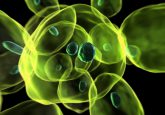In the Zone: CAR-T cells

INFOGRAPHIC | PODCASTS | RESOURCES
Chimeric antigen receptor T-cell therapy, known as CAR-T cell therapy, is an immunotherapy treatment option for cancer, whereby a patient’s T-cells are purified and manipulated in the laboratory and programmed to attack cancer cells.
CAR-T cell therapy has been referred to as a ‘living drug’, as the genes incorporated not only signal the T-cells to attack and destroy cancer cells, but also to grow and proliferate. This means that a patient may only need to be treated once, reducing discomfort and time required to fulfil traditional treatment strategies. CAR-T is also cancer-cell specific, which reduces side effects associated with the destruction of healthy cells experienced with chemotherapy and radiation.
However, CAR-T cell therapy is not without risks and side effects. Cytokine release syndrome, B-cell aplasia and CAR-T-cell-related encephalopathy syndrome have been reported as potential side effects which can be life-threatening.
In order to ensure patient safety following infusion, cytokines can be quantified and monitored. Multiplex immunoassay technologies can provide reliable, high quality data for a variety of biological assays, which can vastly improve quality of life following treatment.
In this feature, we will investigate some of the trials and tribulations associated with researching and developing CAR-T cell therapies. We will also be looking at what the future may hold for the treatment and what benefits we may expect to see from furthering the development of immunotherapies.
PODCASTS
1 CAR-T cell development: an interview with Michael Schwenkert (Bio-Rad Laboratories)
2 Cell therapy: an interview with David Harris (Charles River Laboratories)
INFOGRAPHIC
The CAR-T cell therapy workflow
Find out more about the CAR-T cell therapy workflow in this informative infographic from Bio-Rad Laboratories (CA, USA). Discover some of the challenges associated with CAR-T cell R&D as well as technologies and reagents used for bioanalytical analysis.
RESOURCES
1 Transitioning CAR T-cells from their “comfort zone”: an interview with John Maher
2 Kymriah is first CAR-T therapy to be made available on the NHS
3 Are we moving towards a more automated CAR-T cell manufacturing process?







